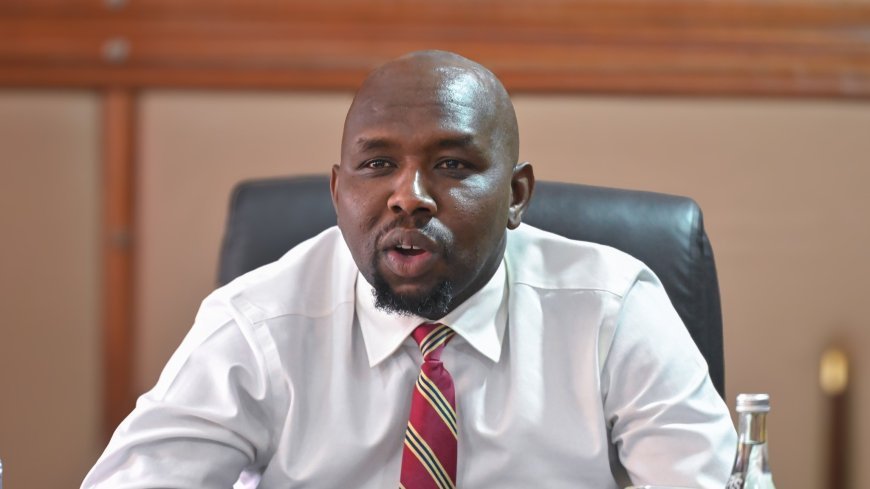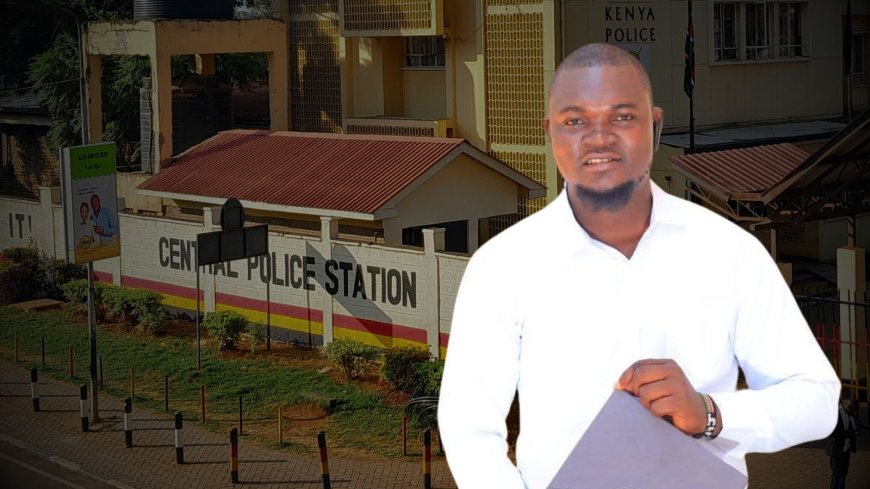Murkomen Orders For All Kenya Police Stations To Have CCTV Cameras
He further directed that the CCTV shall have external backup systems.

Interior Cabinet Secretary (CS) Kipchumba Murkomen has directed that all police stations be equipped with Closed-Circuit Television (CCTV) cameras within the next two years.
Murkomen was speaking on Monday, June 16, during a press briefing at Harambee House in Nairobi, where he announced a raft of reforms targeting police stations across the Republic of Kenya, in the wake of the murder of teacher and X influencer, Albert Ojwang.
He further directed that the CCTV shall have external backup systems as well as live monitoring accessible by the Officer Commanding Station (OCS). Backing up this footage must be done securely to aid in future investigations.
"It shall be mandatory to equip police stations with CCTV surveillance to enhance transparency and accountability. All the police stations currently standing at 1,209 shall have CCTV surveillance within the next two years," he announced.

A photo of CCTV cameras. /EDGELANDS INSTITUTE
Murkomen also ordered that any incidents of assault or misconduct within police stations be reported within an hour, with CCTV systems expected to be a key tool in enforcing accountability.
This directive will be implemented in all 1,209 police stations across Kenya. Parliament is also preparing to pass a law that will make it a criminal offence to delete CCTV footage.
"We shall be making proposals to Parliament to enact laws that criminalise tampering with CCTV cameras. The surveillance system shall be in the custody of the Officer Commanding Station (OCS), and the said officer shall be required to ensure that the system is always functioning and instances of fault shall be reported within one hour through the established chain of command," he went on.
The Cabinet Secretary further announced that Occurrence Books (OBs) will be fully digitised nationwide. This will enable every report to be tracked, audited, and verified in real-time — a move aimed at preventing manipulation and promoting transparency.
As part of broader reforms, Murkomen unveiled a community-centred integration strategy to rebuild public trust and enhance service delivery.
Police operations will now face regular independent audits to evaluate performance and identify areas needing improvement. Officers and stations that excel will be publicly acknowledged and rewarded.
"Officers will be required to work together with civil groups, religious groups, and local communities, and this shall undergo regular evaluation to see who is adhering to the set protocols," he directed.
To support these reforms, Murkomen mandated continuous professional development starting with Officers Commanding Stations (OCSs), who will undergo mandatory training in constitutional principles and professional ethics to boost discipline, uphold human rights, and improve service efficiency.
At the same time, he pointed out difficulties in enforcing Article 244 of the Constitution, which outlines the core duties of the National Police Service. He noted that although the article emphasises professionalism, discipline, and respect for human rights, there are still significant gaps in meeting these standards.
Despite mounting pressure on the Cabinet Secretary to compel Deputy Inspector General Eliud Lagat to step aside amid ongoing investigations, the CS has maintained that proper legal procedures must be observed.
At the same time, social media is awash with calls for protests planned for Tuesday, where demonstrators are expected to demand Lagat’s resignation over his alleged involvement in the death of blogger Albert Ojwang while in police custody.







